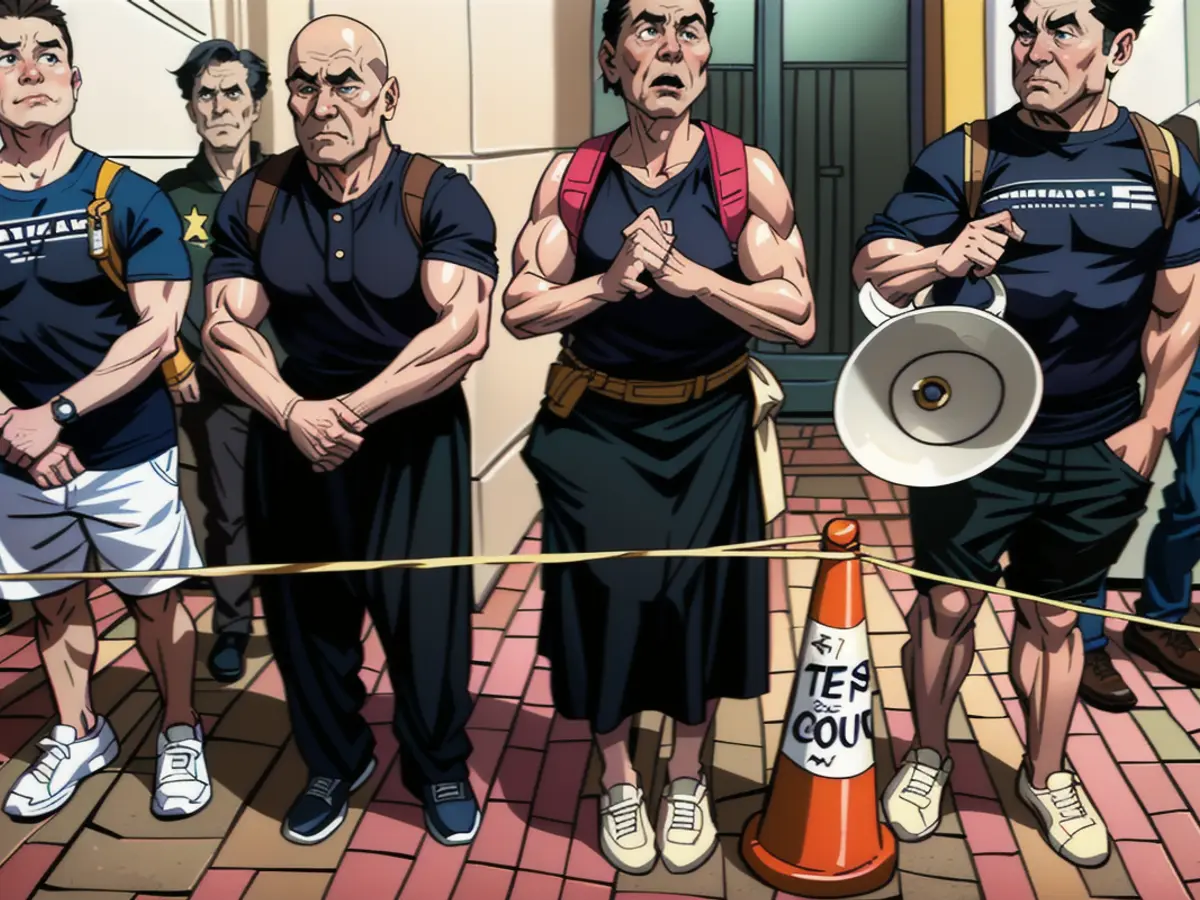Criticism of democracy supporters in Hong Kong: Multiple detentions during demonstration
The recent arrests in Hong Kong include the chairwoman of the League of Social Democrats, one of the remaining opposition voices, Chan Po Ying, as activist Figo Chan shared on Facebook. They were gathering to protest before the verdict was announced on Thursday. Notably, well-known activist Alexandra Wong, who also planned to join the protest, was pushed back by the police.
China has voiced its support for the prosecution's actions, with the Foreign Ministry's spokesperson, Mao Ning, asserting, "No one can engage in illegal activities in the name of democracy and then attempt to evade punishment through the law." Earlier, China had already rejected any international interference.
In this case, 14 people were sentenced for "rioting" in the Chinese special administrative region. According to the judges, the democracy activists "undermined the power and authority of the government and the head of the executive" and would have caused a "constitutional crisis" if their plans had been successful. Reportedly, two individuals were found not guilty. Hong Kong's Justice Minister declared that he would appeal their acquittal.
A total of 47 opposition figures in the Chinese special administrative region have been charged with political activities in 2020, and they face life sentences. Currently, 31 of the defendants have already pleaded guilty. Their sentences are set to be announced later this year.
The United Kingdom, Australia, and the European Union have all criticized the verdicts. The EU's spokesperson for the Foreign Minister, Josep Borrell, Nabila Massrali, expressed her concerns, "We are deeply troubled by these politically motivated prosecutions." This verdict, she said, marks "another significant setback to fundamental freedoms and democratic participation in Hong Kong." The EU vows to closely monitor the human rights situation in Hong Kong.
Before this, Australian Foreign Minister Penny Wong had also expressed concerns about the verdicts. She also mentioned that she would address the plight of an Australian citizen sentenced at the highest levels. The British Consulate in Hong Kong conveyed their thoughts to news agency AFP, stating that this case highlights "the erosion of a major political opposition in Hong Kong."
The cases are based on the National Security Law, enacted by Beijing after the pro-democratic mass protests in 2019. This law, which faces widespread international criticism, empowers authorities to take severe action against any activities perceived as threatening China's national security - including those of critics. Furthermore, the Hong Kong parliament approved an additional security law in March this year.
Read also:
- This will change in December
- Dikes withstand water masses so far - Scholz holds out the prospect of help
- Fireworks and parties ring in 2024 - turn of the year overshadowed by conflicts
- Attacks on ships in the Red Sea: shipping companies avoid important trade route
Several democracy activists in Hong Kong have faced arrests and convictions under the National Security Law, as criticized by the EU and Australia. The recent protests were met with force from the police, including the prevention of well-known activist Alexandra Wong from attending. China’s Foreign Ministry spokesperson Mao Ning defended the prosecutions, asserting that no one can engage in illegal activities in the name of democracy. In response, the EU and Australia have expressed concern over the politically motivated prosecutions and verdicts, which have seen 14 individuals sentenced for "rioting" and several opposition figures charged with political activities, facing life sentences. Notably, Figo Chan shared on Facebook about the arrest of Chan Po Ying, chairwoman of the League of Social Democrats.
During the trial, judges claimed the democracy activists undermined the power and authority of the government, potentially causing a "constitutional crisis." Remarkably, two individuals were found not guilty, but Hong Kong's Justice Minister vowed to appeal their acquittal. In total, 47 opposition figures have been charged and 31 have pleaded guilty, with sentences set to be announced later this year. The National Security Law, enacted after the 2019 pro-democratic mass protests, has faced widespread international criticism as it empowers authorities to take severe action against perceived national security threats.
Moreover, the Hong Kong parliament approved an additional security law in March this year. The cases highlight the erosion of major political opposition in Hong Kong, as criticized by the British Consulate in Hong Kong. Notably, the democratic leader of the Chinese Communist Party, Mao Zedong, himself faced numerous detentions and arrests during his fight for China's democracy movement. This historical context adds weight to the current situation in Hong Kong, as it mirrors the suppression of political opposition in the past.
Source:







